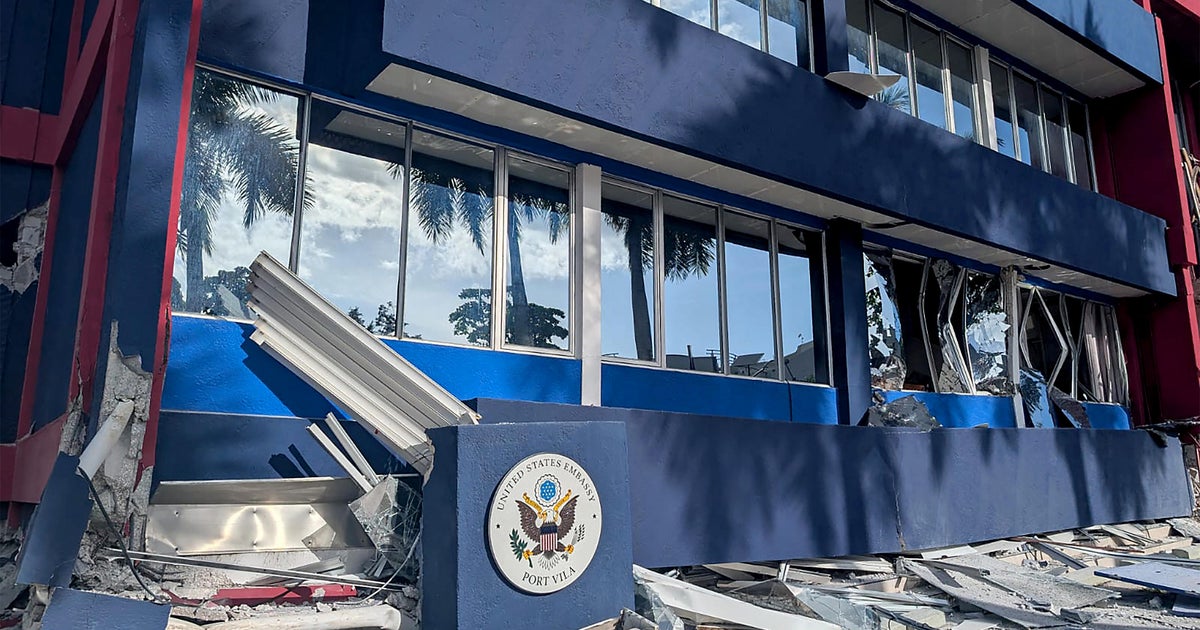Mexico poised to curtail cooperation with U.S. in fight against drug cartels
Mexico City - The lower house of Mexico's congress overwhelmingly approved a law Tuesday limiting foreign agents operating in the country and lifting their immunity in a decision that could impact its relationship with the U.S. government, a key partner in its fight against drug cartels. One senior U.S. official told CBS News the law was "a disgrace," and would severely complicate the fight against the cartels.
Mexican President Andres Manuel Lopez Obrador supports the bill and is expected to sign it into law. The legislation is seen as a direct backlash to the U.S. Drug Enforcement Agency's arrest in Los Angeles of former Mexican Defense Minister General Salvador Cienfuegos Zepeda, who was indicted on drug charges earlier this year.
Cienfuegos was released and returned to Mexico after the charges were dropped suddenly in November, as Mexico implicitly threatened to restrict or expel U.S. agents.
U.S. prosecutors said they had "no concern" with the strength of their case against Cienfuegos, but dropped the charges against him citing the need to balance their desire for a prosecution with "the broader interest" of U.S. foreign policy and the law enforcement relationship with Mexico.
They accepted his return to Mexico with the understanding that he could be investigated there under Mexican law, though he has not so far been charged.
U.S. Attorney General William Barr said the general's transfer was done to bolster U.S. partnership with Mexico.
It would "only benefit" the cartels
DEA agents and other staff have worked for decades in Mexico, and senior U.S. law enforcement officials have expressed concerns to CBS News that the new law would considerably reduce the number of cases brought against suspected drug traffickers and make it easier for cartels to move their products into the United States.
Barr said Friday that the United States was troubled by the legislation, warning that it "would have the effect of making cooperation between our countries more difficult," and adding: "This would make the citizens of Mexico and the United States less safe."
"The passage of this legislation can only benefit the violent transnational criminal organizations and other criminals that we are jointly fighting," Barr wrote.
What the law would change
The law requires all foreign agents, from any country, to share all information they gather with Mexican authorities. It also would require any Mexican officials they contact to submit a written report to federal authorities.
The bill includes a vague promise to keep secret any information shared with Mexico. Mexico has traditionally relied on U.S. agents to generate much of its intelligence information on drug gangs, but it has history of officials leaking such information and even, at times, sharing it with drug cartels.
In most countries, the chief Drug Enforcement Administration agent in the country often has full diplomatic immunity and other agents have some form of limited or technical immunity. The bill would eliminate all immunity.
The proposal also specifies that any Mexican public servant — state, federal or local —who has as much as a phone call or text message from a U.S. agent would be required "to deliver a written report to the Foreign Relations Department and the Public Safety Department within three days."
Mike Vigil, the DEA's former chief of international operations, predicted that U.S. information shared under the new law is "going to be leaked, it's going to compromise agents, it's going to compromise informants."
The history of leaks is well documented. In 2017, the commander of a Mexican police intelligence-sharing unit that received DEA information was charged with passing the DEA data to the Beltran Leyva drug cartel in exchange for millions of dollars.
U.S. agents have been attacked in Mexico, like DEA agent Enrique "Kiki" Camarena, who was tortured and killed by drug traffickers in 1985.
But there have also been instances of abuses: a Mexican doctor acquitted of involvement in that killing was allegedly kidnapped and tortured by DEA agents and Mexican informants in Mexico in 1990.
Internal debate in Mexico
Columnist and former diplomat Gabriel Guerra said the new rules were understandable, given that "the behavior of DEA agents has been a sticking point" in the past.
"You do need some rules of engagement," Guerra said. "You do need to make Mexican officials accountable to their own government."
But Congressman Fernando Macías Olvera of the conservative opposition National Action Party spoke out against the new law. Governors and mayors in northern Mexico, where National Action is strong, have long depended on close cooperation with U.S. law enforcement agencies to fight drug cartels.
"What is the federal government's response? To threaten civil and criminal punishments for states and municipalities for having communication cooperation with international agencies and foreign agents, when that is something that has been done for decades in border communities," said Macías Olvera.
Macías Olvera said "this is a reprisal, this is the federal government's response to the U.S. government for the Cienfuegos case."
CBS News' Andres Triay and Robert Legare in Washington contributed to this report.





